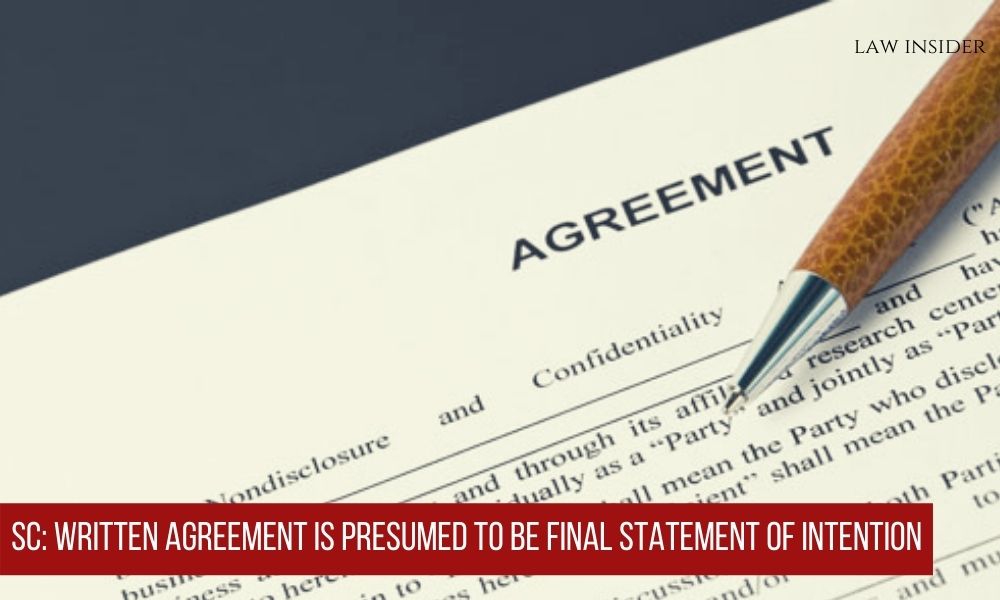Alka Verma-
Published On: November 1, 2021 at 13:05 IST
The Supreme Court of India has recently held that when Parties turn their Agreement into written form, it is assumed to be a full & final Statement of intentions.
“It has been Held that when parties deliberately put their Agreement into writing, it is conclusively presumed, between themselves and their privies, that they intended the writing to form a full and final statement of their intentions, and one which should be placed beyond the reach of future controversy, bad faith and treacherous memory,” stated the Court.
A Bench comprising Justices L Nageswara Rao, Sanjiv Khanna and B.R. Gavai, made these observations while Hearing a Case regarding the validity of the time period of a Partnership Deed.
In the said Case the Petitioners and Defendants were partners and as per a 1992 Deed happened with them, the plaintiff No.1 was entitled to have 50% share in profits and losses.
However, in 1995, when some other persons were introduced as partners, the share of Plaintiff 1 and Plaintiff 2 were decreased to 25% each.
Moreover, in an Agreement that happened in 2004, both Plaintiffs were removed from the deed.
When the issue was brought before the Court, the Defendants stated that the mentioning of 25% share in the Deed of 1995, was just a mistake of record and both the Plaintiffs were only entitled to 10% Share.
After listening to the impugned Judgment of High Court, wherein it Upheld the Trial Court’s Judgment that together the Plaintiffs were entitled to 10% share in the profits, the Plaintiffs moved to Supreme Court.
The Apex Court in its observation stated that from the provided statements, it is quite clear that the partners entered into an Agreement in 1995.
Referring to Case of Roop Kumar v Mohan Thedani wherein the import of Section 91 and Section 92 of the Evidence Act is well explained, the Court stated, “When persons express their agreements in writing, it is for the express purpose of getting rid of any indefinite-ness and to put their ideas in such shape that there can be no misunderstanding, which so often occurs when reliance is placed upon oral statements. “
In response to the Defendant’s argument that the Agreement of 1995 was a mistake, the Apex Court stated that this argument was quite illogical and vague as it was clearly written in the Agreement that the parties had consented to it.
In the end, held that Plaintiffs are entitled to 50% share in profits and losses, the Apex Court stated that if the Deed of 1995 was a mistake, the Defendants could have improvised it between 1995 and 2004.
Click Here to Read/ Download the Order
Also Read: What is the meaning of Evidence under the Indian Evidence Act 1872?
Delhi Police urges to award Life Imprisonment in Evidence Tampering Case

